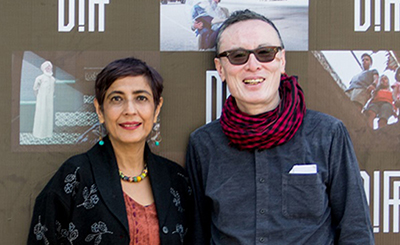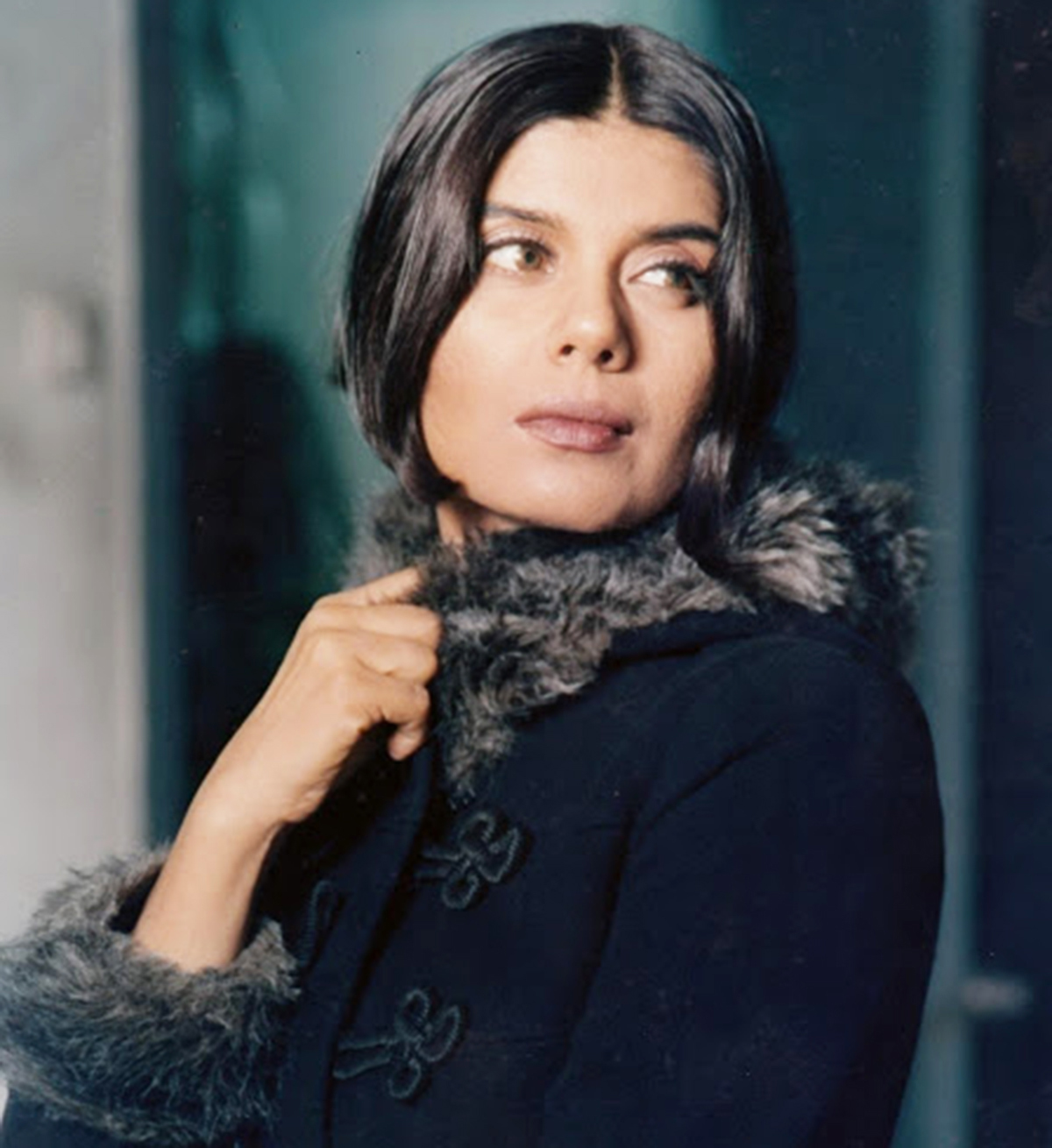
Anatomy of Emotion: Actress Mita Vasisht
There is a method to Mita Vasisht’s approach to each role: she lives it, entering and experiencing the parts she plays with practiced ease. She doesn’t play a character so much as she presents its spirit, which, inevitably, becomes an act of absorption, immersion and engagement — an act which she calibrates by diving deep into the wellspring of diction, emotion and intuition.
“One emotion can have thousands of shades. Anger, for instance, can take 27,000 forms. The same emotion of grief can have fifty shades. It’s up to you how you play a category of any emotion. What I try to bring to the audience is the thought process behind creating that emotion. That is how each role becomes different from the other one,” says the actor, while talking about her role of a grief-stricken mother, Gulabi, in her latest arthouse offering, Gajendra Shanker Shrotriya’s Kasaai, which premiered on October 23 and is streaming on Shemaroo Me Box Office. Set in Rajasthan in the backdrop of the impending village council elections, the film features Vasisht in the lead role and details the struggles she wages as a mother against the patriarchal tyranny after her son, Suraj (Mayur More), is accidentally murdered by his impulsive father, Lakhan (Ravi Jhankal), triggering a cover-up mission at the hands of the family’s men.
Speaking over phone a day after the release of the film, Vasisht, 53, who has also forayed into scriptwriting and direction, underlines at the outset of the interview how she essentially sees herself as an actress. “I like my gender. I feel it’s very important to acknowledge this aspect because it does affect my performances,” she says. As a female, her body becomes a conduit for her craft, enabling her to express herself. If you tell her that she manages to lend her role in Kasaai, a political drama, tremendous intensity, Vasisht would first like to strip the generic sense off the word: Her act, she says, is intense not because it leaves a very strong impression for being violent or showing situations that capture her “throwing power out of my eyes”. It is intense because she endeavours not to show just the emotion, but the reason behind the emotion. She enters her character through inhabiting the world she comes from: accessing her mindscape through her incisive dialogues, which is delivered in her raw and rustic Rajasthani tone, and internalising her overwhelming grief of losing her son early in the film. Delving into the subtleties of emotion and the nuances of her character’s pain comes first. “It is then that you enter the politics of the role,” she says.
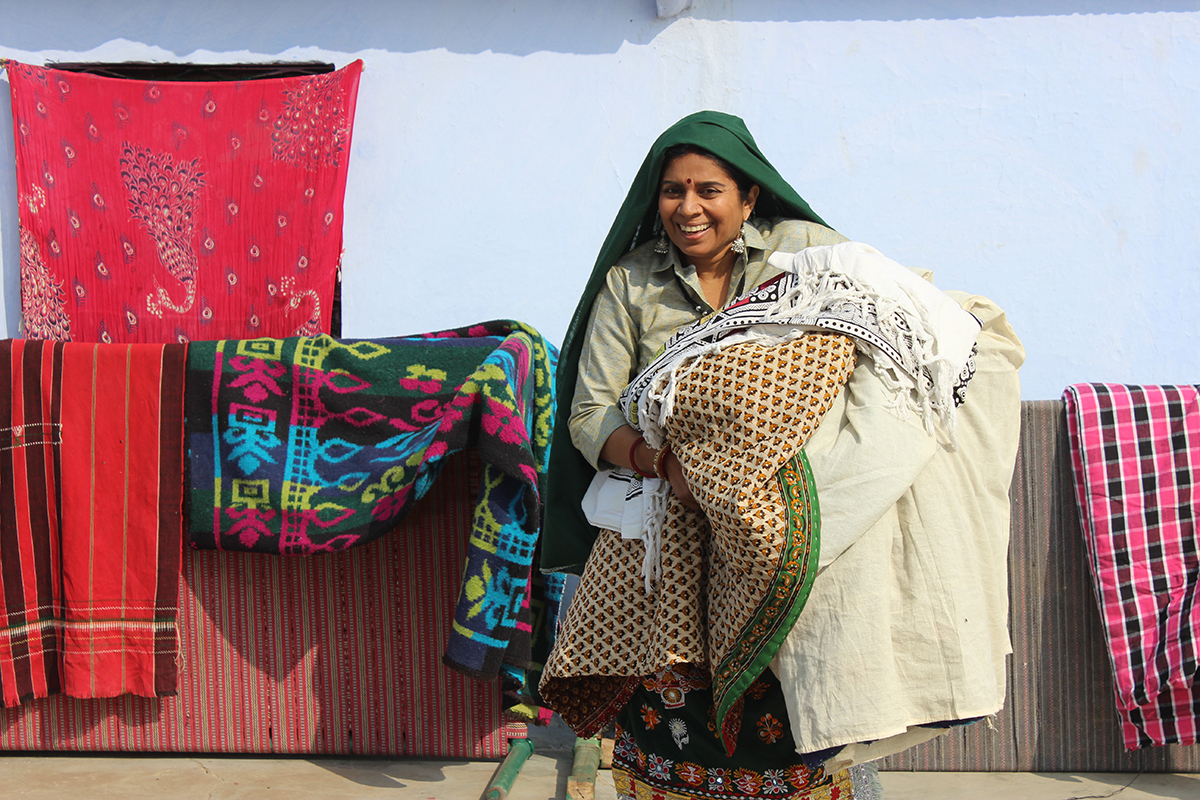
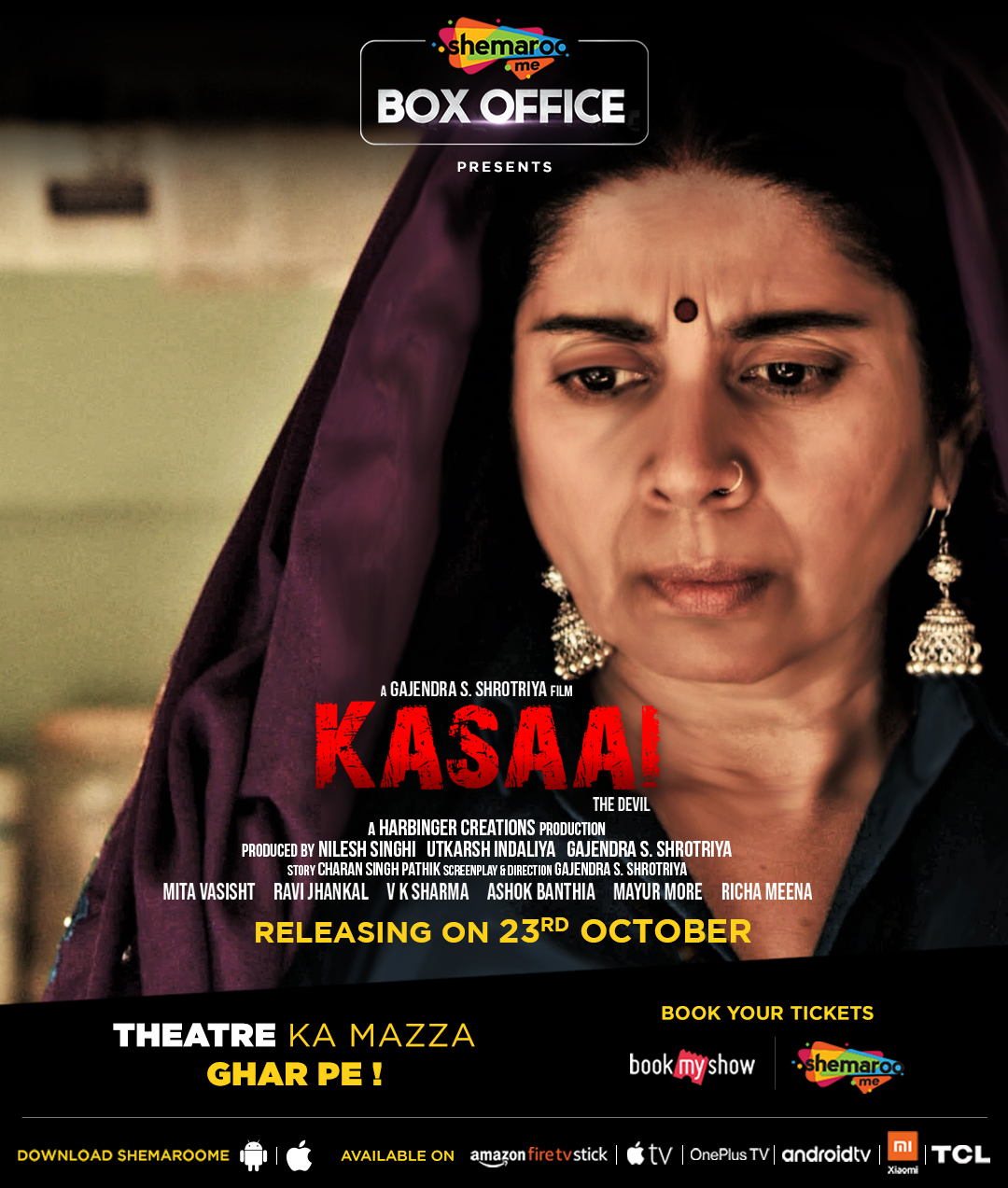
A still (top) from Gajendra Shanker Shrotriya’s Kasaai, which premiered on October 23 and is streaming on ShemarooMe; the film poster (above)
In Kasaai, the consummate actor delivers several emotional scenes, shot during a tight schedule of two weeks in the freezing cold in Rajasthan. Due to the time constraints, she had to do one emotional scene after another — sometimes even three in a day. “Any other actress would have liked to do just one scene in one day,” she says. In a scene, after her son is killed, she is dragged away from the body and locked up. The sequence, shot from the back, is so powerful that director Shrotirya lets the camera roll for nearly a minute. During the shoot of the scene, Vasisht wondered whether it was a mistake. “I thought that perhaps he had said ‘cut’ and I had missed it,” she says. But he hadn’t; he had quietly watched, smiling away, filled with admiration for what Vasisht had achieved in that scene.
In a marital rape scene in the film, which is executed aesthetically, when her husband forces himself on Gulabi, she kicks him in his balls and walks out. When Vasisht was preparing for that scene, she had to keep in mind that she didn’t have to “weep over it” as it usually happens in conventional rape scenes. “When you are in a marriage, sex is the most exciting thing all the time; it’s like a routine,” says the actress, who pulls off the scene with disgust writ large on her face and by her knockout kick, followed by a scathing line: You couldn’t become the father of our son, but are trying to be my man. The disgust conveys much of what could be on her character’s mind with regard to her husband: To hell with you. You can’t enter my body and destroy my spirit and show who you are.
While playing any character, Vasisht tries to “portray a deep emotion intelligently”, ensuring that she “carries” that emotion with her, putting her body in that mode. Playing Gulabi, she says, was emotionally overwhelming because it entailed that she deals with every moment in the film differently. It requires a certain sensibility, she says, to settle on how much emotion to give and where — what kind? what quality? “When you craft such a performance, this sensibility has to be at the core of your overall artistic vision,” she says.
***
Portraying the resoluteness of women’s spirit, often in a patriarchal setting, seems to come quite naturally to Vasisht. She plays the lead role of a feisty matriarch, Durgeshwari aka Baisaab, in Ganesh Yadav’s Agnipankh, the Hindi adaptation of Prabhakar Laxman Mayekar’s Marathi play, set in the newly-independent India, which was part of the 80 odd teleplays Zee Theatre released in October (on Tata Sky, currently streaming on Zee5). Like Kasaai, Vasisht carries the entire play on her shoulders, playing it with the characteristic aplomb and perfection all her own. Her strength, one observes, is the way she gets under the skin of her character often by bringing into play the way they speak — the manner they utter a word and, even, how they pause between words. The story of Baisaab, a Brahmin matriarch presiding over her zamindari household, who shares a complicated love-hate relationship with her escapist husband, Raosaab (Satyajit Sharma), is multi-layered and it takes an actress of Vasisht’s calibre to breathe life into her role.
In a career spanning over three decades, 33 years to be more precise, Vasisht has straddled several worlds — from being the leading lady in some of the finest avant-garde films, playing character roles in commercial movies and teleserials, venturing into scriptwriting and direction, making her appearance on OTT platforms in a couple of webseries, to doing theatre, which remains her raison d'être; it informs the choice of her roles, shapes how she enacts them, and ennobles her as an actress. Theatre teaches her how to rise above the form, if required, and helps her grasp the intricacies of the body’s mechanics. It gives her a chance to be a nonpareil performer.
Vasisht, a post-graduate in literature from Punjab University and a National School of Drama graduate, made her first cinematic appearance in Var Var Vari (1987), a 30-minute diploma movie by Kumar Shahani, the filmmaker, one of the luminaries of the New Wave Cinema, who was dedicated to formalism which lays great emphasis on the technical elements of filmmaking — lighting, sound and set design, scoring, etc. But she really arrived with Siddheshwari (1989), a cinematic portrait of Varanasi’s legendary Hindustani classical music singer Siddheshwari Devi, directed by another parallel cinema stalwart, Mani Kaul. Since then, she has essayed several stellar roles and worked with directors like Govind Nihalani (Jazeere, Drishti and Drohkaal), Mani Ratnam (Dil Se...), Subhash Ghai (Taal), Priyadarshan (Snegithiye and Raakilipattu), Shyam Benegal (Bharat Ek Khoj), Mahesh Bhatt (Swabhimaan), and Gulzar (Kirdaar), to name just a few. If you remember the good old serials on Doordarshan, you will perhaps recall the grace and poise with which Vasisht played Sushma, a college teacher who must let go of her love, Neel (Aman Verma), because her family situations demand it, in Pachpan Khambe Laal Deewarien (1993), based on the heartbreaking novel by Usha Priyamvada, directed by P.K. Mohanty. Her portrayal of over-the-top Trishna, a key role in Ekta Kapoor’s Kahani Ghar Ghar Ki (2000-2008) reportedly helped take the serial to new TRP heights, beating the record of sister rival serial Kyunki Saas Bhi Kabhi Bahu Thi. She played the characters with grey shades in Jodha Akbar on Zee TV (2013-2015) as Akbar’s evil stepmom, Mah Chuchak Begum, and in Kaala Teeka (2015-2017) as the main antagonist, Jethi Maa. Since 2004, she has been performing her 75-minute solo play in English and Hindi, Lal Ded, based on the life of the medieval Kashmiri mystic of the same name. She has also made a film, She, of the Four Names (PSBT, 2012), which presents the fictionalised depictions of Lal Ded’s life and features Kashmiris recounting the deeply personal narratives about her life. Vasisht excels playing characters in positions of power and authority — principal (Savitri Singh in Suvreen Guggal on Channel V India, 2017), corporate lawyer (Mandira Mathur in Criminal Justice on Hotstar, 2019) and inspector (Kiran Sekhon in Your Honor on Sony Liv, 2020).
***
In all these years, roles have mostly come to Vasisht. There have been times when she has also chosen some roles. “I don’t go after roles; I don’t have anyone in the market looking for what is there for me,” she says. Some roles were even written keeping her in mind. She has turned down many roles in the past, when she either didn’t have the dates or the role didn’t quite fascinate her. Today, however, Hindi cinema hardly comes up with any role that could challenge her. The sensibilities have changed: Today’s directors are a far cry from a Sahani or a Kaul. The roles for senior actors, especially those who remain grossly underused like Vasisht, are few and far between. Vasisht would very much like if she is sought out by a director. “I feel that you should say yes to the film only when a director really wants you; I want the director to want me because filmmaking is, ultimately, the director’s medium. The director has to respect you as an actress who is striving to craft what he has on his mind,” she says. An actress should excite the director’s imagination as much as the role he has crafted for her, says Vasisht.
As a director and a writer, her focus is on fictional realities that are “deeper than the temporary politics of the time”. As an actor, she considers her ‘duty’ to keep the “aspirational realities” alive. During the pandemic, things in theatre and films have not been the same, but Vasisht has reconciled herself with all the changes that this period is going to bring forth with regard to how we look at theatre and cinema. “To imagine that change is the only constant is the only reality human beings have. We may dislike getting older, for instance, but we can’t vote off life or times,” she says.
The state of theatre, even before the pandemic, had not been too encouraging, she says. “Theatre doesn’t allow anyone to live off it,” says the actress as she elaborates on the travails of doing theatre in India, an exercise which is nearly impossible without sponsors. “You want to do theatre but there is not enough space or scope,” she says. People who do theatre hardly get any profit. “It’s wonder if they break even,” she says. What makes Vasisht weary is the insistence of sponsors, who are mostly “in the business of concerts”, on “a certain kind of product”. “I just don’t see why I should constantly be putting myself up as a product,” she says. Sponsors, she adds, do not want to part with their money unless it’s something for the “masses”.
***
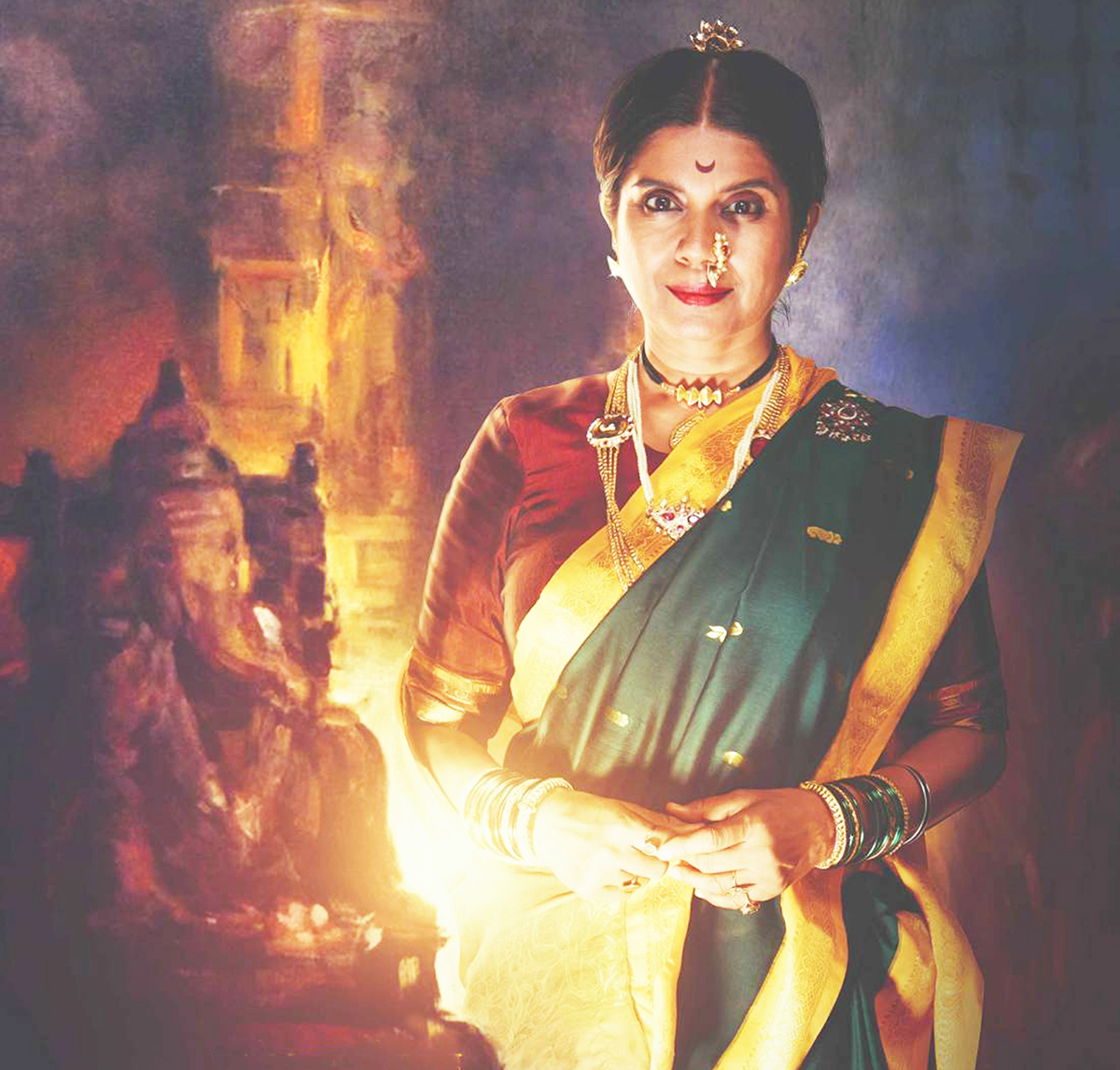
Vasisht plays the lead role of a feisty matriarch, Durgeshwari aka Baisaab, in Ganesh Yadav’s Agnipankh, the Hindi adaptation of Prabhakar Laxman Mayekar’s Marathi play
During the lockdown, which has forced all of us to retreat to our inner shells, Vasisht has found herself reflecting on the need to look within and, even, slow down. She says people have forgotten to live “just for the sake of living”. They want to celebrate every moment of the day. She says: “Why must you be in the limelight all the time? You must dig deeper. You need a little thinking time, a little ‘me-time’ and learn to be at peace with the fact that you are alive and have some faculties.”
There are a few projects that keep Vasisht preoccupied these days. First and foremost, there is a non-fiction film, most likely to be called That Thing Called the Actor, based on Natya Shastra, the 2,000-year-old Sanskrit treatise on the performing art, which is a compendium on the art and craft of an actor. It will also have references to Mani Kaul’s ideas on acting and Siddheshwari, the first film they did together. Incidentally, it was Kaul who had taught Vasisht not to try to be Siddheshwari. “You have to present her spirit, not play her,” he had told her. “Kaul understood the craft of the actor, totally and intensely. He wanted the actor to sublimate his whole persona into a cinematic image,” says Vasisht. The film has reached the post-production stage and being edited at the moment.
Vasisht has also been toying with two more ideas: A book, likely to be called Summer Moon, based on her now-shelved theatre art module Mandala, which she had started in the beginning of 2000 to empower trafficked minors forced to join the sex trade. For five years, she had worked with young rescued prostitutes and helped them start a new life till she had to close it after it got embroiled in a needless political controversy. The book will be about the efforts at their rehabilitation and the importance of arts and theatre in that process. Another book, which is going to be of huge interest to her admirers and those interested in cinema, is her memoir, which has been on her mind for a while now. It will delve into the different ways the craft was approached and how, sometimes, many things fall outside the ambit of the craft; like an actor’s relationships with co-actors. It will be about what actors do in the film as well as what it does to them. “It’ll be about a deeply personal journey in which I will dwell a lot on relationships. However, it is going to take some time. I have been writing it slowly,” she says.
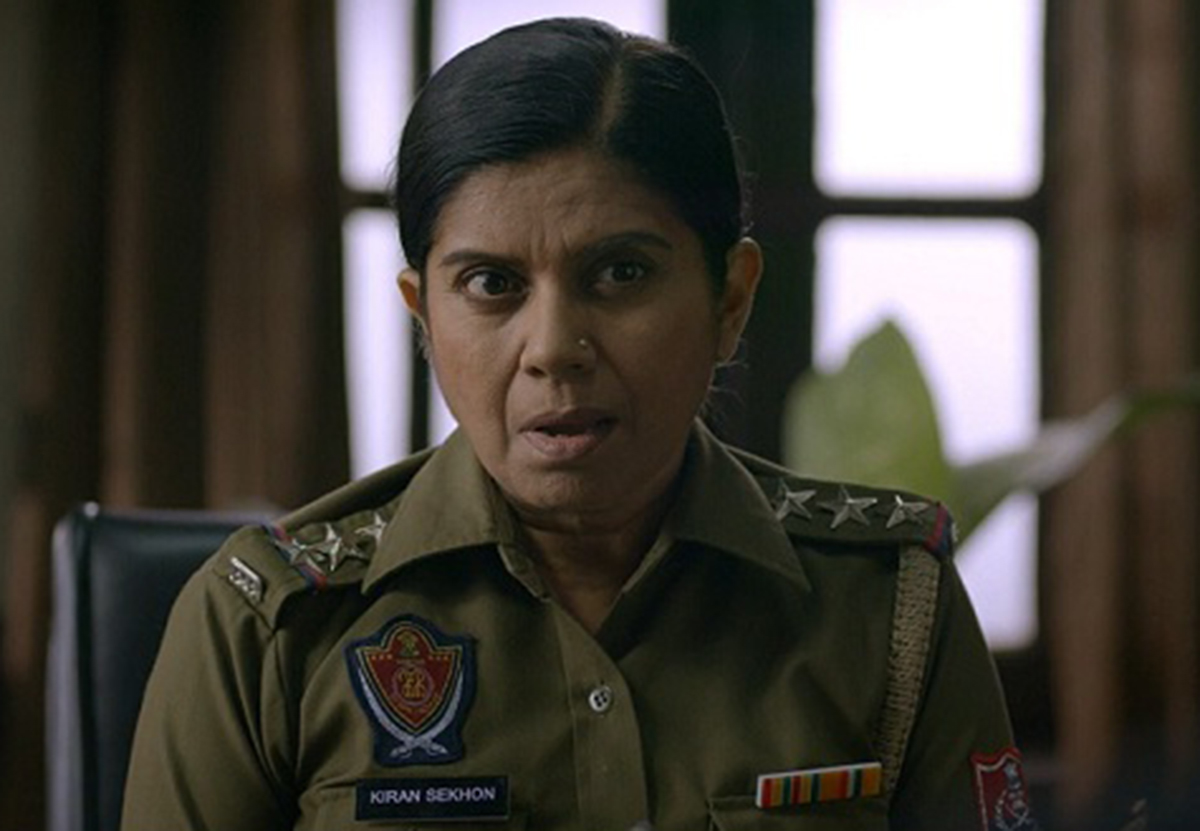
As inspector Kiran Sekhon in Your Honor on Sony Liv
The fact that someone like her has survived in the film industry purely on the basis of her talent, doing her own thing, says something really positive about the kind of industry it is, says Vasisht: “It doesn’t always have to be what people think it is.” She is grateful that she still gets some roles that appeal to her.
***
Vasisht shares wonderful stories of growing up into an Army family in Chandigarh, where life was “wondrous” and filled with a sense of adventure. Everything fascinated her: Lighting diyas in the water during Diwali, painting, music, literature, cycling and tailoring. She recalls being struck by the “extraordinary everydayness of things” and travelling across the country with “an elevated sense of the idea of a nation”.
Besides the values instilled in her by her family, what has been instrumental in making her who she is, says Vasisht, is the kindness and compassion of others. “I have always come across amazing people who have given me a sense of wonder and that has helped me grow and take myself to a certain place. The kindness of others would transform you and make you work harder,” she says. When she was studying at Punjab University, her teachers saw her as an “intelligent” person and motivated her. In her first year, her economics teacher told her she must become an actor when Vasisht grew up. “I was 17. Can you imagine an economics teacher telling you that you have something about you and that you must become an actor?” she says.
At that time, Vasisht’s introduction to cinema was through the films of Rajesh Khanna, Mumtaz, Hema Malini, among many others, whom she admired. Some of the performances that have stayed with her include Dilip Kumar’s double role as twins separated at birth in Ram Aur Shyam (1967) and Om Puri’s class act as an honest police officer, DCP Abhay Singh, in Droh Kaal (1994). She also looked up to Meena Kumari, Shammi Kapoor Humphrey Bogart and Al Pacino, besides others. During the lockdown, she watched Marlon Brando in The Godfather saga and was “completely blown” by it.
***
Towards the end of the interview, moments before the hour-long call is over, Vasisht laments the “dipping standards” of journalism in India, and, by way of compliment, shares how much she enjoyed our chat: “It’s the most fascinating conversation that I haven’t had even with my friends.” She thanks me for allowing her to “touch base with myself”. Praise is not a feeling. But, coming from Vasisht, it feels like an emotion. “Inside each and every word there is an emotion, a thought, that produced the word and justifies its being there,” wrote Russian theatre legend Konstantin Stanislavski in Creating a Role (1961), the third and final book on his method for learning the art of acting. Stanislavski also wrote about an approach of acting in which actors immerse themselves in the character’s experience of the fictional reality in a play. As an actress with her roots in theatre, Vasisht seems to know these only too well.
More from Culture
Comments
*Comments will be moderated










